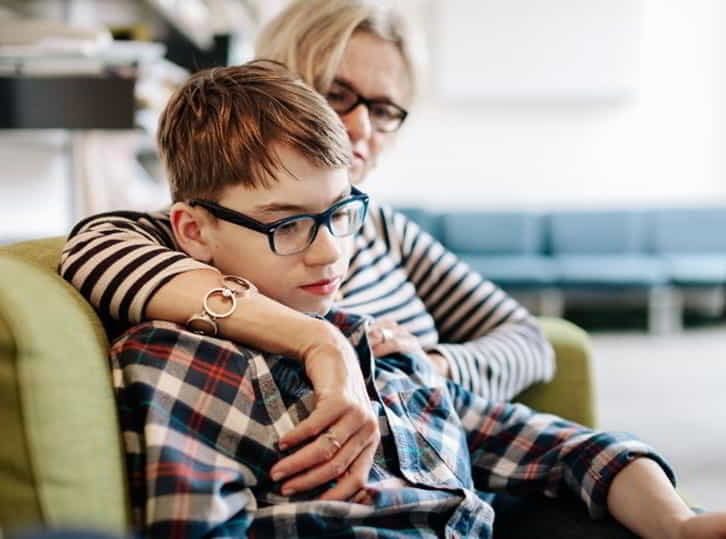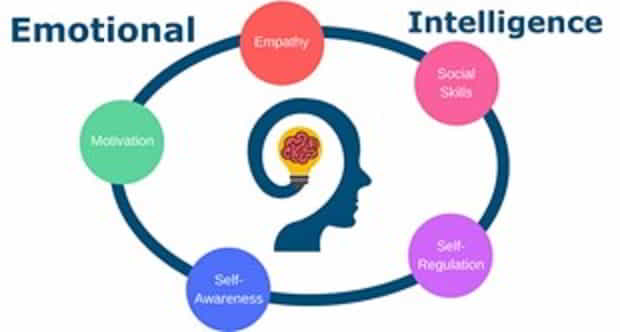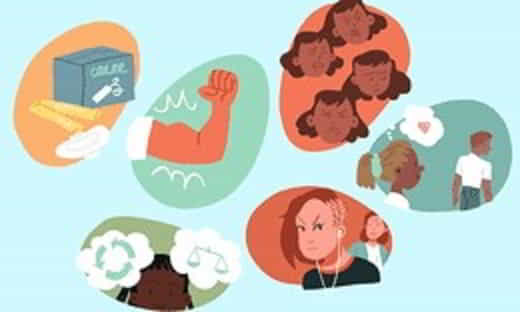Teen years
Wow, teens, what a period in a child’s life this is. This is one of the most influential periods in a child’s life and it can be a real roller coaster ride as they turn into mini adults. Many will argue that this period has seen the most dynamic change over the last 50 years. The teens of the 60s are not even remotely like the generation Z of the 2020s. In every aspect of physiological development, life options, social environment, social influences, diversity, communications and pressure.
We mentioned in the early years section how we as parents are influencers of our children. As children grow into teenagers that influence starts to diminish and can even conflict with social influences.
Teenagers haven’t really changed looking at their characteristics but their environment has changed dramatically increasing the risk of external influence and views. It makes it even the more difficult for parents to handle a teenager than previously.
Here are some facts and stats about teen years. GO!
Teenagers are mini-adults with a letterbox view of the world – but they don’t know that! GO!
When does the transformation from child to teenager start? GO!
Suddenly your child has changed into something you don’t necessarily like… GO!
Emotional intelligence determines how teens progress through these years – theirs and yours! GO!
Your emotional intelligence is needed to make sure your children become confident teenagers. GO!
It’s really important to teach teenagers to handle money. GO!
We have a testimonial GO!
What next? GO!
Some stuff you might like? GO!
Facts about teenage years
11.6 million teenagers in the UK 2020 (20%) are from ethnic minorities.
24.6 is the average age for teenagers leaving home in the UK in 2019
is the average age for the first sexual experience
Between 2007 and 2019, smoking prevalence in the 16/17-year-old age group fell from 23.3%
to 7.8%. (ash – action on smoking and health). Download report
The Centre for Longitudinal Studies (CLS) at the Social Research Institute show that one in five (21%) young people were obese at age 17, and a further one in seven (14%) were overweight, based on data collected in 2018-19.
Of teenagers access video on demand services online in 2019
Between 1993 and 2018, the under-18 conception rate in England and Wales decreased by 60%, from 42 per 1,000 women to 17 per 1,000 women. (ONS)
of teenagers have total constant open access to the internet

Teen years – mini adults with a letter box view of life, but they don’t know that
Teenagers are and should be treated as Mini Adults, but to a parent that is easier said than done. Parents find themselves on occasion having a really adult conversation with their child and this leads the parent into a false sense of security thinking "Wow, my child is really growing up quickly". The next minute you are shouting at them for jumping on the settee and say those catch phrase words; "Will you grow up and start acting your age!!!"
The reality is that they are. When children want to concentrate on a specific subject they can do for short periods of time and then revert back to their child brain. As parents you will see the adult brain making an appearance increasingly as the child gets older.
Adolescence is an exciting time as teenagers become increasingly independent, begin to look forward to their lives beyond school, and undergo many physical, emotional, and cognitive changes. In that last category, teenagers can learn to take charge of their developing brains and steer their thinking in positive and productive directions toward future educational and career success.

So when does the teen transformation start?
Every child is different and every generation is as well. Firstly, if your child has had a difficult childhood then it goes without saying the adolescence could be the same. There is a significant difference today between body age and mental age. We often see young boys and girls who are taller than their parents more physically developed than their parents and most certainly grandparents but not necessarily more mature. Due to the diet, we have been feeding our children since the 90s the body has developed but the mind hasn’t.
As children move towards adolescence their hormones kick in and start to change the individual. Harry Enfield caricatured this with film Kevin and Perry. Parents and children often recognise the behaviour changes, but what do we do about help both parties manage the transition?
One thing is for sure – parents never stop been parents, even when their children are in their 40s. The years between 12 and 25 are very important years for parental support. Especially around 16 plus when children are getting more and more involved in adult life. These are critical times when children are exposed positively and negatively to adult influences, but in many instances are using an immature brain to decipher and interpret this influence. Why 25? Well research suggests today that many young people are maturing at a lot slower rate mentally today, due to the western climate and culture. It’s been scientifically proved that children growing up in a deprived or even conflict type environments mature faster than those with no major risk associated social issues.
Emotional intelligence can often catch parents out because some teenagers sound grown up and participate in adult discussions and decisions. This is a great position to be in, but we should not lower our guard and assume they can handle all adult content. Increasingly due to the internet, mobile phone technology and parents distracted with working and earning children from the age of 12 can become vulnerable and seduced by adult content from this medium. Many parents today are letting their teenagers watch adult TV content without thinking what impression it is creating. Something as simple as a soap opera’s story lines can be quite deep and leave teenagers thinking this is the normal adult behaviour. Let’s face it even some adults get carried away and believe soaps are real!
Parents play a big role as the education system sends them on their way at 18 to either further education or into the workplace. Many teenagers are vulnerable at this age and parents are the guardians of their teenagers and need to keep a strong handle on their development. After 14 most teenagers are accessing adult content and it’s new and interesting but also very manipulating; it can push your child down a road that would not be good for them. Open dialogue and communication are needed, testing understanding and ensuring your teenager is getting the right message.

When does the Alien come along and replace my cuddly child with a teenager?
John Bishop wonderfully sets the scene; “I believe in aliens because one day an alien came and took away my lovely cuddly child and replaced it with a teenager. Now we don’t talk anymore and they think I should be grateful for living in the same house as them, feeding them my food and using my TV.” Don’t worry the alien does return that lovely cuddly child but it’s usually around 22 to 25 when it happens. Until then enjoy the ride.
Talking a different language
We realise our child is a teenager when they don’t understand 80% of what we tell them or say. When Beyonce has more influence over your child than you do. It’s all part of growing up. Teenagers think they know everything and genuinely believe they do for a reason. Because their brain doesn’t think there’s any other view, especially a parent’s or adult’s view unless they are a centre of influence. As parents we need to see this coming and make sure we take to watch what centres of influence our teenagers are gravitating towards. Unsupervised internet activity can lead to major issues with teenagers. Parents are often naïve and think their teenagers are not looking at adult content but they are.
There are very few parents who haven’t experienced the language barrier. One successful way to overcome most issues is changing your behaviour. We are all creatures of habit and humans are extremely habitual creatures. We chastise and manage our children in the same way over the years and we naively think that children don’t know how to play the game, when they do. They know exactly how far to push and are constantly testing the line which they shouldn’t cross before getting into trouble. But children especially young one lacks vocal skills but watch facial and body language and tone and know where the lines are.
If you having an issue with your teenager or child, look to YouTube as someone will have done a video about just that subject. Another way is to change your behaviour and how you approach things. Your child or teenager will notice the change in behaviour and start to think what’s going on here, something’s changed. Normally I can read the situation; I do something wrong and my parent says; go to your room and no computer for one day. Ok I think, that’s normal and I can live with that. I will wait for a few hours and then start to judge their mood and see if I can persuade them. I will offer to clear the table and be really nice and courteous to my sister. Then I can go on my computer again.
They say behaviour breeds behaviour. If you change the way you deal with something then your teenager is thrown onto the back foot and realises and they get uncomfortable. A mum once felt so undervalued because she cooked every day when she came home. The kids thought it was like a hotel and could sit at the table with an imaginary knife and fork in hand because mum had not set the table waiting for the food they were allowed to choose. The mum accepted she was too soft and had complained that nobody helped or were grateful. So, mum came home one day and left the uncooked food in the fridge and announced to the kids “I’m going on strike”, and refused to prepare any food. Naturally there was a discussion about withdrawing labour and after 2 hours still no food. The kids finally came around and mum wisely said – I want support; setting the table, washing the dishes preparing simple foods, getting a drink. Changing how a parent behaves can change the behaviour of their children.

Emotional Intelligence
Emotional Intelligence helps us manage negative emotions and our responses to them. Research shows it also impacts on how teens and students perform academically.
Results (Parker, et al 2005) of a study of 1,426 first-year students found significantly higher interpersonal, stress management, and adaptability skills among students who were academically successful in entering university. The authors’ conclusion was that EI has a large impact on students’ ability to deal with challenges such as developing new relationships and learning to live more independently, amongst other factors.
Equally, issues with emotional intelligence cause emotional rather than thought through responses, often leading to behavioural problems. The Canadian Counselling and Psychotherapy Association did a great presentation on EI and enables you to look at your own feelings and behaviour, and has EI training steps set out. So, it can lead to good and negative outcomes.
A good example is someone passing a driving test. At 17 years old are they adults or still a child? They always say children are great at learning new skills especially when it’s rewarded. Passing your driving test has many rewards and children can concentrate for 2 hours a week over 10 weeks to learn and pass a test. But statistics prove that learning behaviour and rules bound exercise ceases when they get in their own car and not under supervision. One could say this child has been given the task to learn a new skill. But are they mature enough to be left in charge of a half a ton metal instrument that can go at 100mph? Have a look at the BBC series Barely Legal Drivers here and decide for yourself.
One member found a very successful way to deal with their teenager who dropped in and out of maturity would say: “Am I talking the mature teenager today or the immature teenager today?”. It became a joke and the teenager would even say: “Can I talk to you about this and by the way it’s the mature teenager talking”. This method is probably as good for the teenager as it is for the parent.
Twitter is a great place to see emotional intelligence with people often reacting to comments in a childish way. People feel hurt by others comments and feel compelled to reply often with an aggressive put down and personal attack. Our parents and grandparents would say to us as children; sticks and stones may break your bones but calling names won’t hurt you. It seems today that calling names is now the same as sticks and stones, and people use words such as ‘outraged’ or ‘angry’ and demand apologies for the slightest mistake.

Confident Parents, Confident Kids: Raising Emotional Intelligence in Ourselves and Our Kids
How do we raise a happy, confident kid? And how can we be confident that our parenting is preparing our child for success? Our confidence develops from understanding and having a mastery over our emotions (aka emotional intelligence) — and helping our children do the same. Like learning to play a musical instrument, we can fine-tune our ability to skilfully react to those crazy, wonderful, big feelings that naturally arise from our child’s constant growth and changes, moving from chaos to harmony.
Training the child to be a mini adult
In education now there is a push to involve children in more adult activities such as committees and projects whereby there is team activity and everyone plays a role. Many parents at home will often say: “It’s just easier if I do it”. Rather than have the argument it’s easier for parents to cook the dinner, set the table, wash the dishes, clean the house and bathroom and their children’s bedroom. But it’s not.
Asking your teenager to set the table for dinner 6 times is a pain so you do it yourself, but that is really not supporting your child on the road to becoming a good all-round adult. There are many ways you can do this from setting up a points system to rewarding for helping.
The Families blog has an article on setting chores for kids of different ages.

Teaching your teenager to budget understand risk and reward
It is really important to teach teenagers how to manage money. Teenagers who understand this mainly grow up to be financially sound adults.
The first step is to go through what they spend, and how this compares to what they get as income. Providing regular income seems to breed more awareness of their financial position. So, sit down with them and do a budget.
It’s also important to curb impulse buying. Teenagers are impulsive, and peer pressure means they are inclined to spend to keep up.
Get them to list their spending, and encourage them to use cash and avoid credit card debt. Explain credit scores and their impact.
The Money Advice Service have advice on helping teenagers’ budget and Parent Toolkit explain about budgeting
For visitors
Why don't you join us?
You can register to join us as a member, when you’ll be able to download our stuff and comment, or as a YouDriver when you’ll also be able to check your health and set up your own action plans to make some improvements. If you’ve already registered, sign in below. Or let us know what you think.

Next Steps
It doesn’t matter what stage you’re at – it’s important to be the best you can be. At the end of the day it’s about taking personal responsibility – You Drive!
It’s really your choice. You can find out more information about the subject, or see other institutions that can help by going to Support. There you will find organisations, training, coaching, self-help courses and other items to support your personal change. We have also started developing a panel of experts to provide info, advice, help and support.
Get Support
There are times when you need some help to meet your aims – a helping hand. That might be an organisation that can provide you with some help, some specialised information or support, or just getting some background reading material.
You can see these by clicking the Support button here. Some products or services contain affiliate links and we may receive a commission for purchases made through these links
Experts
We are compiling a list of experts who can provide advice, help or specialised services. You will be able to access these experts from anywhere on our site you see our ‘Experts’ symbol. Click the green E to see what our Experts list will look like, with a couple of imaginary ‘experts’ added!
More Information
Scroll down to see more information on this Drive.
If you register you can also download reports, white papers, quizzes and other collaterals. We will never ask you for any financial information, and we’ll only send you the information you want. You can register for our site either above or in the footer below. You can provide your own questions and experiences in order to help other members. We only moderate for spam and inflammatory language – see our moderation policy.
If you’ve found this interesting, then please share it on social media. Choose your network!
The Teenager in The Greenhouse: A Psychologist’s guide to parenting your teenager
This book is aimed at equipping parents with the understanding of why teenagers behave as they do and explores effective tools take away a lot of stress in dealing with them.
Parenting the New Teen in the Age of Anxiety:
A Complete Guide to Your Child’s Stressed, Depressed, Expanded, Amazing Adolescence
our Guidebook for Parenting Teens in the New Teenage Years
How to Talk so Teens will Listen & Listen so Teens will Talk
Packed with practical, accessible advice and guidelines, both parents and teens will learn how to communicate
Confident Parents, Confident Kids
Raising Emotional Intelligence in Ourselves and Our Kids–from Toddlers to Teenagers
How do we raise a happy, confident kid? And how can we be confident that our parenting is preparing our child for success?
Life Strategies for Teenagers:
Positive Parenting Tips and Understanding Teens for Better Communication and a Happy Family
Author Bukky Ekine-Ogunlana draws on 14 years of experience working with teenagers and their parents to offer proven methods for improving family communication skills, learning positive parenting and positive discipline methods and strategies for dealing with teen cell phone use and social media safety
Life Skills for Teens:
How to Cook, Clean, Manage Money, Fix Your Car, Perform First Aid, and Just About Everything in Between
The teenage years are an exciting yet ever-changing period of your life. New challenges and tasks seem to pop up almost daily—not to mention all the transitions your body is going through.
